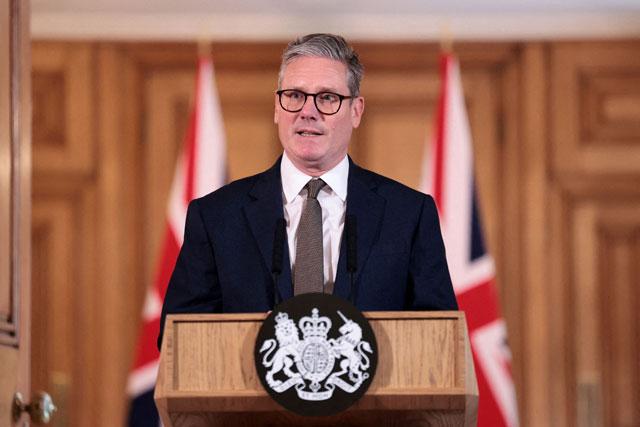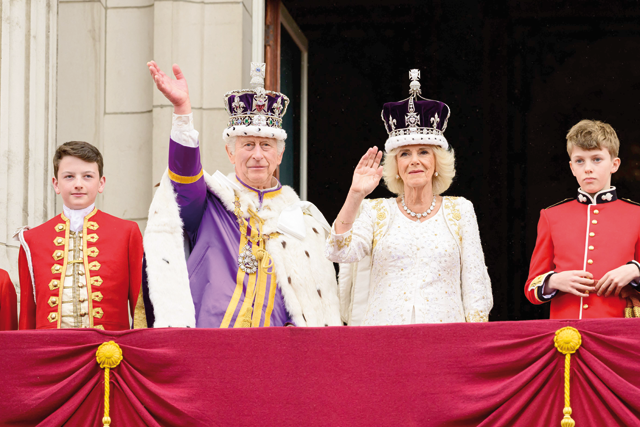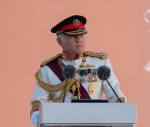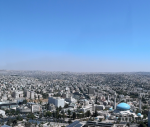You are here
UK’s Labour gov’t programme laid out in king’s address
By AFP - Jul 17,2024 - Last updated at Jul 17,2024
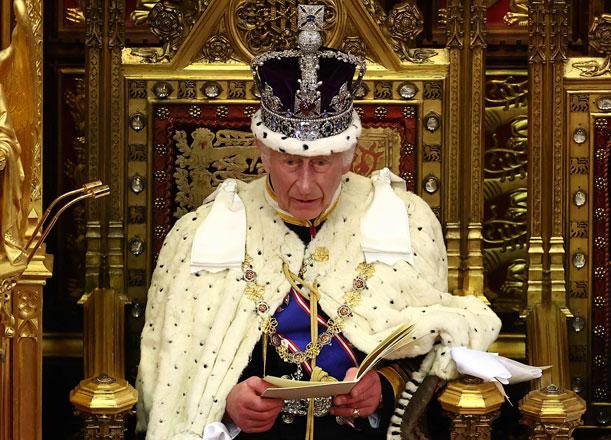
Britain’s King Charles III, wearing the Imperial State Crown and the Robe of State, reads the King’s Speech from the The Sovereign’s Throne in the House of Lords chamber, during the State Opening of Parliament, at the Houses of Parliament, in London, on Wednesday (AFP photo)
LONDON — King Charles III outlined Labour’s first programme for government in 15 years on Wednesday, with promises of economic stability and tougher action on irregular immigration to improving relations with Europe soured by Brexit.
“We will unlock growth and take the brakes off Britain,” Prime Minister Keir Starmer said in introductory remarks to the King’s Speech, a centuries-old tradition full of pomp and ceremony that details the laws the government proposes to make over the next 12 months.
Despite its name, the address, which marks the official start of the new parliamentary session, is not written by the monarch as head of state but by the government. It was centre-left Labour’s first such speech since it was last in power in 2010.
Wearing the diamond-studded Imperial State Crown, his Admiral of the Fleet uniform and the crimson Robe of State, Charles delivered Labour’s proposals from a golden throne in the House of Lords upper chamber after a carriage procession from Buckingham Palace.
The speech included more than 35 bills, including measures to enforce public spending rules and an independent assessment of future budgets to prevent a repeat of former prime minister Liz Truss’s disastrous 2022 mini-budget that tanked the economy.
The legislation fleshed out several announcements already made, such as the launching of a wealth fund to draw investment into the UK to spur growth and of a publicly owned body tasked with boosting clean energy by 2030.
Labour also announced an acceleration of housebuilding and plans to take Britain’s much-maligned rail services back into public hands.
There was also detail of a new border security command with beefed-up “counter-terror powers” to curb “immigration crime” — Starmer’s pledge to “smash the gangs” behind migrant crossings of the Channel from northern France.
Populism warning
Labour returned to government following a landslide win against the Rishi Sunak’s Conservatives earlier this month, in which the hard-right Reform UK party led by the eurosceptic Nigel Farage secured five seats.
“The snake oil charm of populism may sound seductive, but it drives us into the dead end of further division and greater disappointment,” Starmer said Wednesday, pledging to lead a government of “service”.
The King’s Speech included a bill to strengthen workers’ rights and plans to reform the unelected House of Lords by scrapping the right of those with hereditary titles to sit there.
Sunak’s proposal to phase out smoking also made it, as did plans for a football regulator.
Labour also pledged to repeal a controversial act that granted conditional immunity to perpetrators of crimes in Northern Ireland during the Troubles era of sectarian violence.
“This is a hungry party,” former Labour minister Tony McNulty told AFP before the speech. “They are chomping at the bit to show that they can get back to being what they see as the natural party of government.”
The legislative agenda made no mention of lowering the voting age to 16 or ending a controversial two-child limit for welfare payments, wanted by many Labour MPs.
Ceremonial ‘hostage’
The day’s ceremonials started when royal bodyguards ritually searched the basement of the Palace of Westminster for explosives — a legacy of the failed attempt by Catholics to blow up parliament in 1605.
The king then travelled from Buckingham Palace, escorted by mounted cavalry, en route to the Houses of Parliament.
A smattering of anti-monarchy protesters chanted “Not my king” outside parliament, while the Metropolitan Police said 10 members of the activist group Youth Demand were arrested on suspicion of conspiracy to cause public nuisance.
An MP was ceremonially held “hostage” in the palace to ensure the king’s safe return.
A parliamentary official known as Black Rod had the door of the lower-chamber House of Commons slammed in her face, a tradition that symbolises parliament’s independence from the monarchy.
MPs then followed Black Rod to the upper chamber, where Charles gave the speech to assembled lords and ladies in red robes with ermine fur, plus invited members of the elected Commons.
In keeping with the convention that the monarch is above politics, he remained expressionless throughout.
Sunak, who intends to step down as Tory leader once a successor is found, said Labour had “tapped into the public’s desire for change” and “must now deliver change”.
Related Articles
LONDON — Newly elected UK Prime Minister Keir Starmer on Saturday began his first full day in charge with a meeting of his Cabinet after his
LONDON — Controversial plans to send migrants from the UK to Rwanda will return to the House of Commons this month after parliament’s upper
LONDON — Charles III on Saturday finally met his date with destiny after a lifetime as heir to his late mother Queen Elizabeth II, as he was


